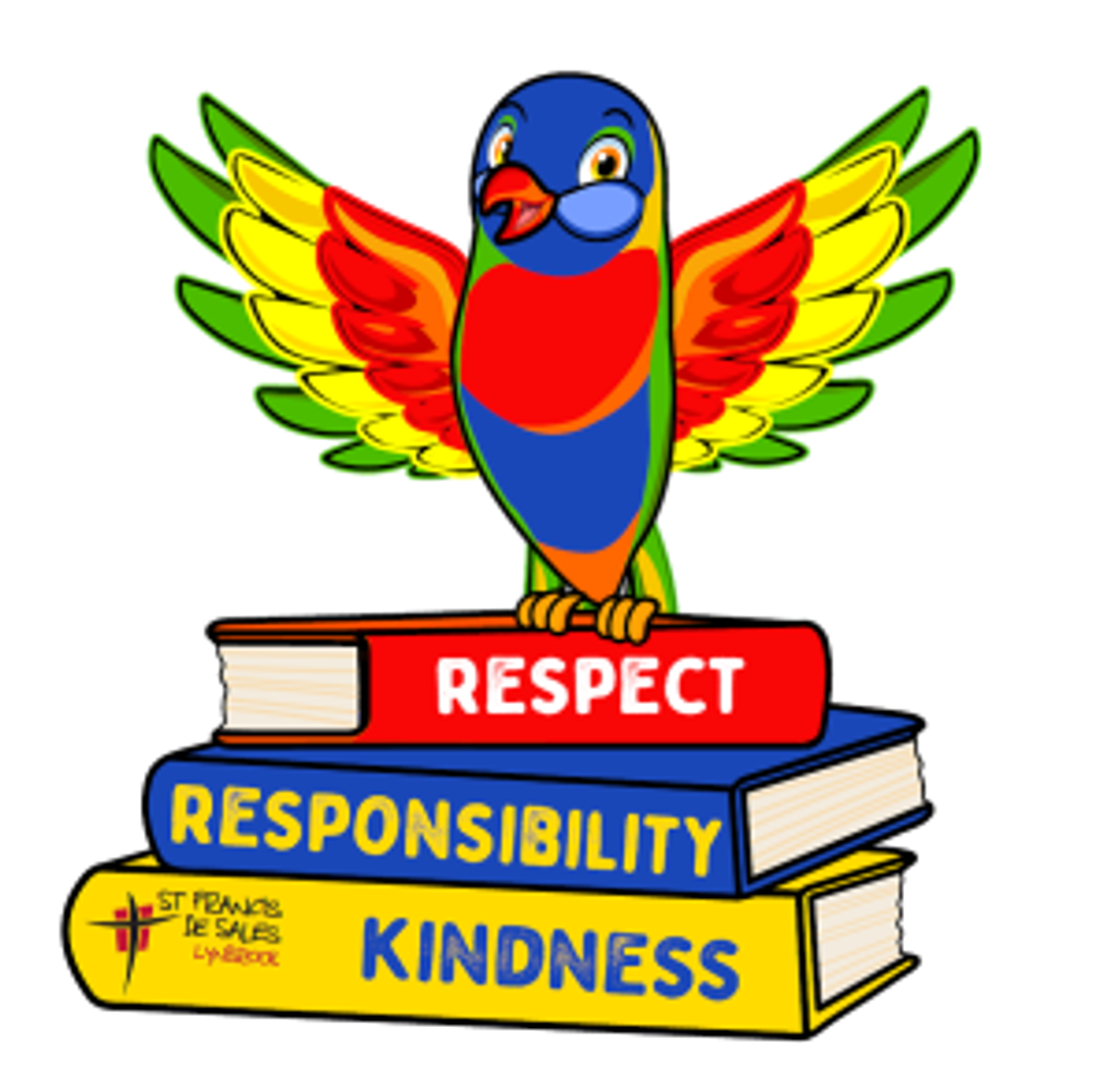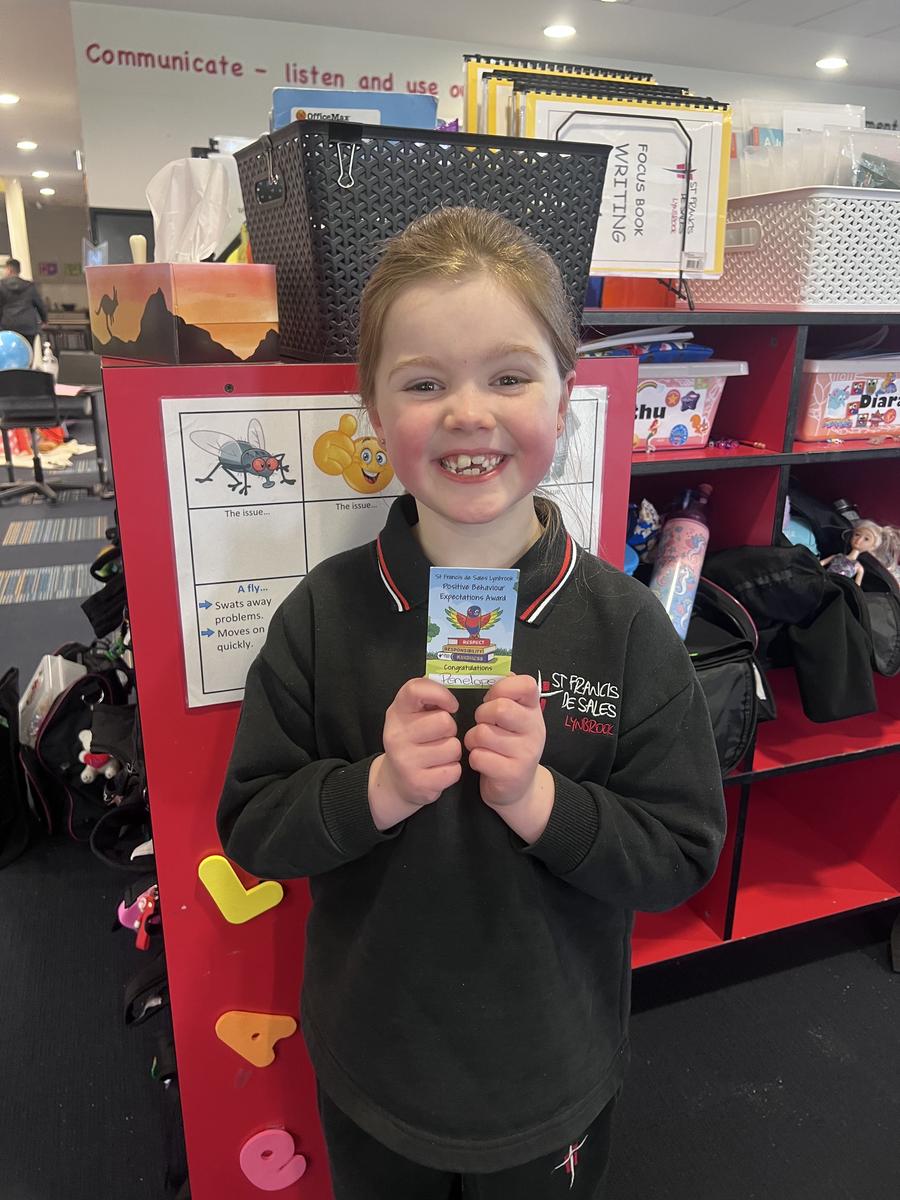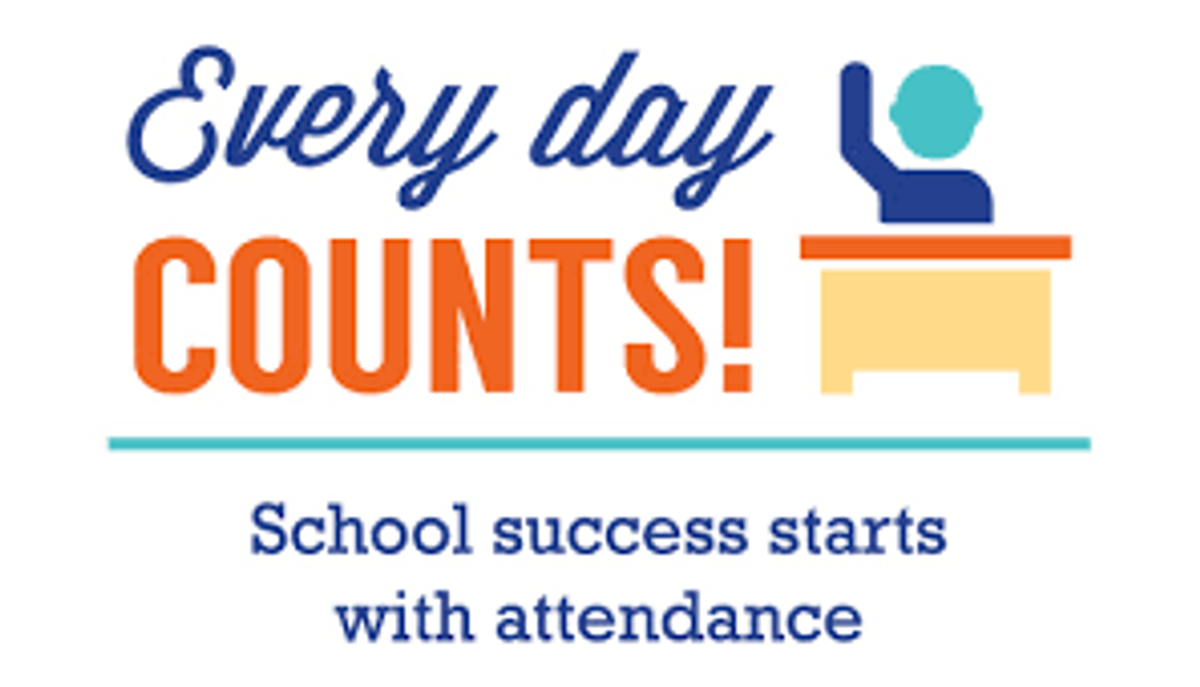Wellbeing

SRC
This week, we had our first Student Representative Council (SRC) meeting. In this meeting, we talked about our school’s safety, rubbish, anti-bullying, sports and peace.
Although all of these were good ideas, we eventually decided on three main topics. These topics are:
- getting rid of rubbish,
- decreasing bullying and
- making there be more safety in the playground and throughout the school.
We also discussed making an idea box, in which the students can write down their names and say what they want us to discuss about. We will look at these ideas every Monday in our meeting, and see which ideas are best suited for the improvement of our school. These idea boxes are now in all learning spaces.
By Lucas, Gisele, Ivy and Christen - LS2 SRCs
Positive Behaviours for Learning
At SFS, our PBL (Positive behaviours for learning) school wide expectations are:
Respect,
Responsibility and
Kindness
PBL
This week we have focused on the expectation of Responsibility: Be ready for learning.
The teachers focused in particular on behaviour that show we are ready to learn such as looking at the speaker, sitting quietly and actively listening to the teacher.
We will continue to focus on Being ready for learning next week. Evelyn (LS 2)
Student Representative Council
The SRC reps were very excited to have their very first meeting with Christine and myself in the staff room on Monday afternoon.
We talked about what the SRC can do and why it is so important for students to have a say in decisions being made in the school and have a voice. Christine asked the children “If you were the Prime minister of Australia, what would you want to do to make our school better?” Each child wrote their name on a sticky note and their idea.
The children shared their ideas and we grouped ideas together that had a similar theme. Christine and I were very impressed with the children’s ideas and their ability to identify what they were passionate about. The 3 most popular ideas where about spreading kindness at school, improving our school environment and safety for the students. Here is a brief report from our Learning space 2 SRC reps about the meeting.
School Attendance
Going to school every day is the single most important part of your child’s education. Students learn new things at school every day – missing school puts them behind.
There is a legal requirement for students 16 years and under to attend school and for schools to keep records of student attendance. We are under the governing body of Melbourne Archdiocese Catholic schools (MACS). As per our school attendance policy, it states that “The MACS Regional General Manager is to be advised prior a referral to a DET School Attendance Officer when a student has been absent from school on at least five full days in the previous 12 months without a reasonable excuse for absence”
We have been very lenient on this, but it is crucial that parents notify the school for the reason for their child’s absent and it must be for a good reason.
The following information was taken from “It’s Cool to be at School” school attendance fact sheet.
“A student’s absence from school can significantly limit their learning opportunities and achievement and may lead to:
• Falling behind at school to a level where the child’s reading, writing and mathematics skills will eventually limit their employment chances
• Loss of friendships and social problems
• Loss of confidence and low self-esteem
• Risk taking behaviour that may flow on to difficulty with police, drugs and alcohol
• Being unable to find and keep long-term employment
What is my responsibility as a parent/care giver?
Ensure your child:
• Attends school on ALL school days
• Is on time every day
Ensure you:
• Tell the school if your child is away and the reason why
• Contact the school if your child does not want to come to school
• Arrange doctor and dentist appointments for after school or during school holidays where possible.
• Arrange personal shopping trips or special birthday celebrations out of school hours
• Do not allow your child to stay at home for minor reasons
• Identify if there is an issue that can be addressed by contact with the school
Why is it important for a child to attend school regularly?
• If your child misses the basic skills in primary school they can experience difficulties with their learning
• Regular attendance is essential to make sure learning is not disrupted
• Schools help children develop important social skills, such as friendship building, teamwork, communication skills and a healthy self-esteem
What can I do if my child says they don’t want to go to school?
• Let the child know that being at school is important to you
• Let your child know that you value learning and education. Talk about how being late or regular absences from school can disrupt their learning and limit their choices in the future
• Keep a regular morning routine. Set the alarm to allow time to get ready
• Have school uniform, shoes, lunch, homework, hat and everything needed ready the night before school
• Consider not having the TV or computer games on before school
• If children appears unhappy, listen to them and help them be honest and objective about what’s happening
• Show your child you are interested in their school and their schoolwork. Ask them about what they are learning and what they do in class and in the playground
• Praise effort and their achievements
• Celebrate their success
• Show and tell others about what your child does at school
• Develop a positive relationship with parents and school staff
• Be part of the school- get involved with activities and events that the school may be running • Remain calm! Be firm and quietly say that they are going to school and continue with your usual morning preparations
• Speak to your child’s teacher, Assistant Principal, Principal or Student Wellbeing Coordinator. This discussion can be confidential (private) and can help the school to put in place strategies to help
What children gain from ‘being at school’
- belonging to their community and peer group
- enjoyable experiences
- interesting and exciting things to do
- nurturing environment
G-aining knowledge
A- dults who listen and are fair
T- rust and respect, given and received
S- kills for living in the world
C- hance to make mistakes and learn from them
H- elp when they need it
O- pportunity to be “themselves”
O- pen doors for the future
L- earning and living experience
National week of Action Against Bullying and Violence
We will celebrate National week of Action Against Bullying and Violence on the week from 12th to 16th of August. The teachers will focus on teaching the children what bullying is, ways we can prevent bullying at school and what to do if they or someone they know is being bullied. The theme for 2024 is 'Everyone belongs'.
When we all feel like we belong, bullying struggles to find a place. It's about embracing who we are, respecting everyone's differences and standing up together against unkindness.
Belonging means we all have a role in preventing bullying. We're encouraged to speak up and create a safe place where everyone feels supported and respected, and our voices are heard and valued.
If you have any concerns about the mental health or well being of your child, please do not hesitate to contact me. I am available to speak to at school, via the phone or email on rlenko@sfslynbrook.catholic.edu.au
Rachel Lenko
Mental Health and Wellbeing Leader






